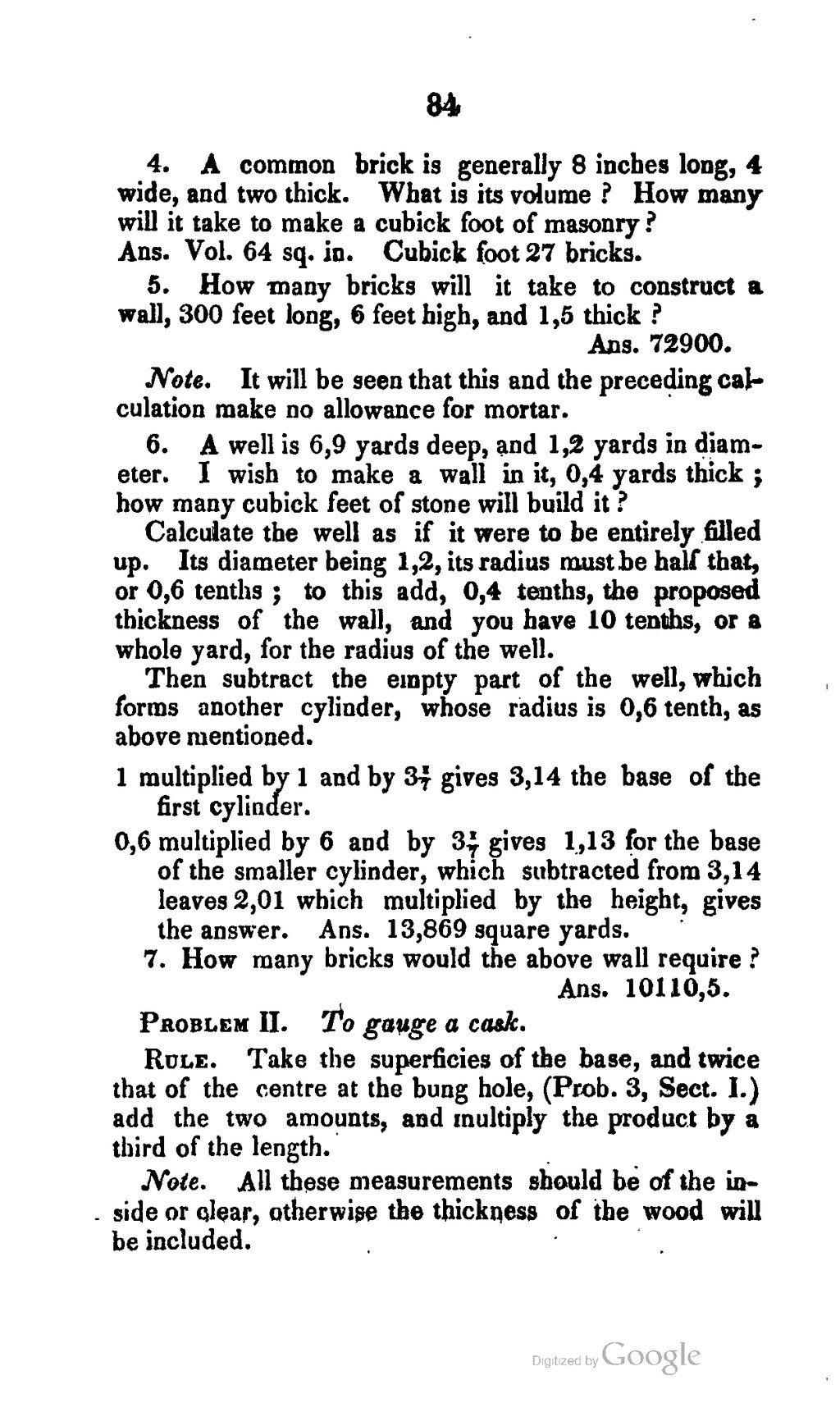4. A common brick is generally 8 inches long, 4 wide, and two thick. What is its volume ? How many will it take to make a cubick foot of masonry ?
Ans. Vol. 64 sq. in. Cubick foot 27 bricks.
5. How many bricks will it take to construct a wall, 300 feet long, 6 feet high, and 1,5 thick ?
Note. It will be seen that this and the preceding cal- culation make no allowance for mortar.
6. A well is 6,9 yards deep, and 1,2 yards in diam- eter. I wish to make a wall in it, 0,4 yards thick ; how many cubick feet of stone will build it ?
Calculate the well as if it were to be entirely filled up. Its diameter being 1,2, its radius must be half that, or 0,6 tenths ; to this add, 0,4 tenths, the proposed thickness of the wall, and you have 10 tenths, or a whole yard, for the radius of the well.
Then subtract the empty part of the well, which forms another cylinder, whose radius is 0,6 tenth, as above mentioned.
1 m 1' " 1 1 * and by 3f gives 3,14 the base of the
0,6 multiplied by 6 and by 3y gives 1,13 for the base of the smaller cylinder, which subtracted from 3,14 leaves 2,01 which multiplied by the height, gives the answer. Ans. 13,869 square yards.
7. How many bricks would the above wall require ?
Rule. Take the superficies of the base, and twice that of the centre at the bung hole, (Prob. 3, Sect. I.) add the two amounts, and multiply the product by a third of the length.
Note. All these measurements should be of the in- side or Qlear, otherwise the thickness of the wood will be included.
Ans. 72900.
Ans. 10110,5
Problem ii. to gauge a cask.
